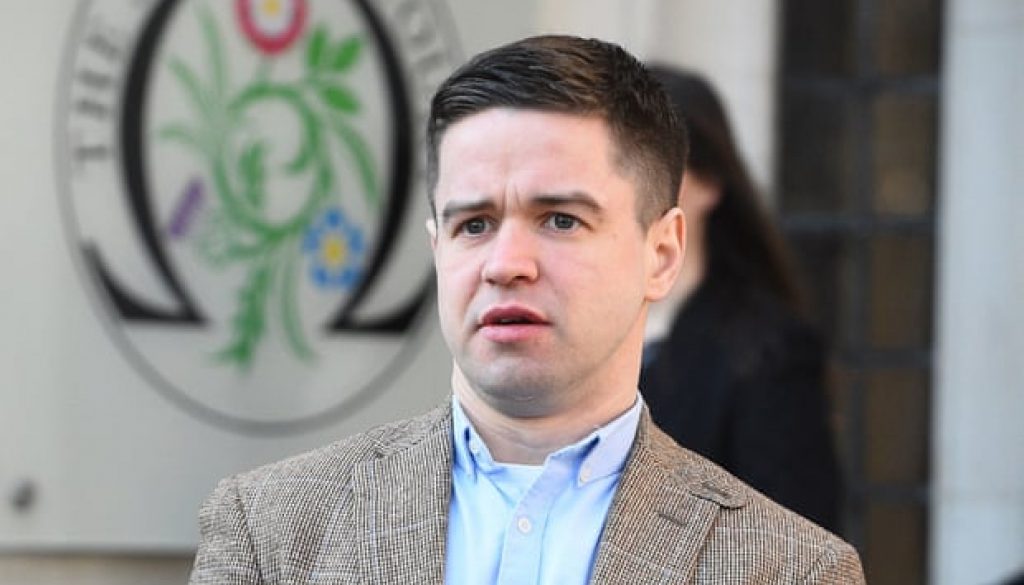Just £10,000 paid out to victims of wrongful conviction in two years
From The Justice Gap we reproduce the following article, highlighted also by our friend John O at mojuk.org.uk, today. The denial of compensation to individuals whose lives have been destroyed by miscarriage of justice is a serious, and apparently worsening, problem. The legal framework under which entitlement to such compensation arises is remarkably restrictive. It excludes the great majority who have suffered wrongful conviction. The result is simply injustice heaped on injustice.
For an example of our own coverage of Sam Hallam’s experience, see HERE.
The system for compensating the wrongly convicted has almost ground to a halt with the Ministry of Justice having received 157 applications in the last two years and only paying out £10,000. Only eight people have received compensation since the Coalition government restricted payouts with the introduction of the Anti-Social Behaviour, Crime and Policing Act 2014. Since then, the Ministry of Justice has received 316 applications for compensation including Victor Nealon and Sam Hallam who are currently challenging refusal before the European Court of Human Rights.
In response to a freedom of information request submitted by the Justice Gap, the Ministry of Justice has confirmed just how effectively the 2014 reforms shut down compensation payouts for the wrongly convicted.
Data released in response to FOI request from the Justice Gap
To put this into context, in a two-year period from 2007 to 2009 the Ministry of Justice paid out a total of £20.8 million in respect of 19 applications granted and 78 applications received. That number included two ex gratia payments. In 2006, the Labour government axed that scheme to compensate the victims of miscarriages of justice leaving just the statutory scheme. It was costing over £2 million a year to run and benefited about 10 applicants a year.
As reported on the Justice Gap, Professor John Spencer QC, of Cambridge University, damned New Labour’s scrapping of the ex gratia scheme without consultation as ‘monstrous’. The Coalition government compounded the problem with the 2014 legislation which restricted payouts under the statutory scheme to those people who could demonstrate their innocence ‘beyond reasonable doubt’. As it went through parliament, the proposals were heavily criticised for effectively reversing the burden of proof and described by Baroness Helena Kennedy as ‘an affront to our system of law’ .
‘It’s nothing short of a scandal the way that the state now treats the victims of miscarriages of justice,’ comments Glyn Maddocks, special adviser to the all-party parliamentary group on miscarriages of justice and member of the Justice Gap’s advisory board. ‘These people are innocent victims of state error. The current arrangement are woefully miserly and lacking in any principal.’ For more information on the miscarriage of justice compensation scandal on the Justice Gap here.
Former high court judge Dame Linda Dobbs DBE is the current Independent Assessor for Miscarriages of Justice appointed by the secrecy of state for justice. The assessor only determines the level of compensation and not eligibility. During Dame Linda’s tenure just three payouts have been made totalling only £10,000.
The cases of Sam Hallam and Victor Nealon, who spent a total of 25 years wrongly convicted, have featured regularly on the Justice Gap – see here. Nealon’s conviction was overturned by the Court of Appeal in 2013 after spending 17 years in prison. He had his conviction for attempted rape overturned after DNA testing pointed to another attacker but was still denied compensation.
Sam Hallam became one of Britain’s youngest miscarriage of justice victims when, at 17 years of age, he was convicted of murder after a trainee chef was stabbed during a fight in London. Hallam spent seven years in prison.
‘Sam Hallam spent seven years in prison for a murder conviction which was quashed due to failings by the prosecution and police but now has to prove his innocence to get any money,’ comments his solicitor Matt Foot. ‘It is utterly shameful that we live in a society where miscarriages of justice victims are denied compensation.’
In his case, the miscarriage of justice watchdog was highly critical of the police investigation saying that the office in charge had ‘no control’. There was no forensic evidence linking Hallam to the murder, no CCTV, plus there was a shocking failure in disclosure. The police had Hallam’s mobile phone with photos of him in a pub with his father earlier in the evening. Thames Valley Police, instructed by the CCRC to investigate the case, spoke to 37 separate witnesses at the busy scene and not a single one put Sam Hallam there. Tragically, his father took his life whilst he was in prison because he blamed himself for his son’s predicament. Again, he was denied compensation under the legislation.
The original article can be found HERE.


![16[2]](https://mojoscotland.org/wp-content/uploads/2024/06/162-1024x768-394x330.jpg)

